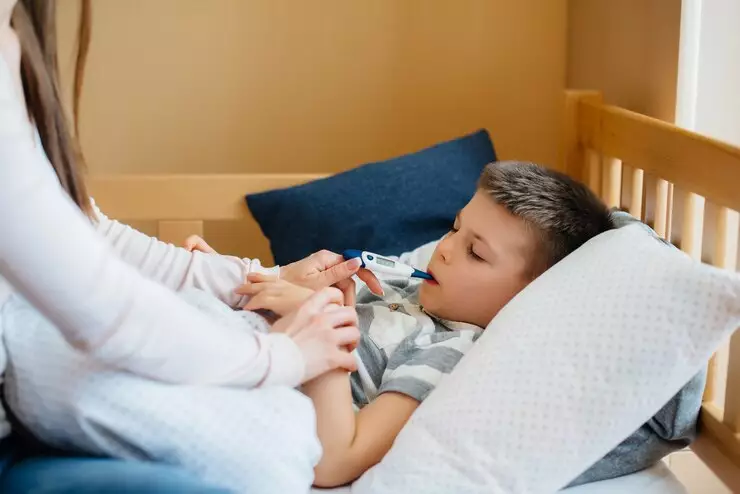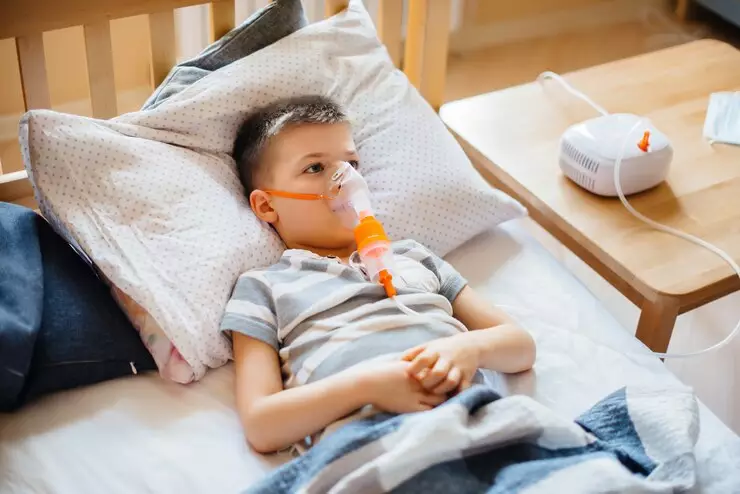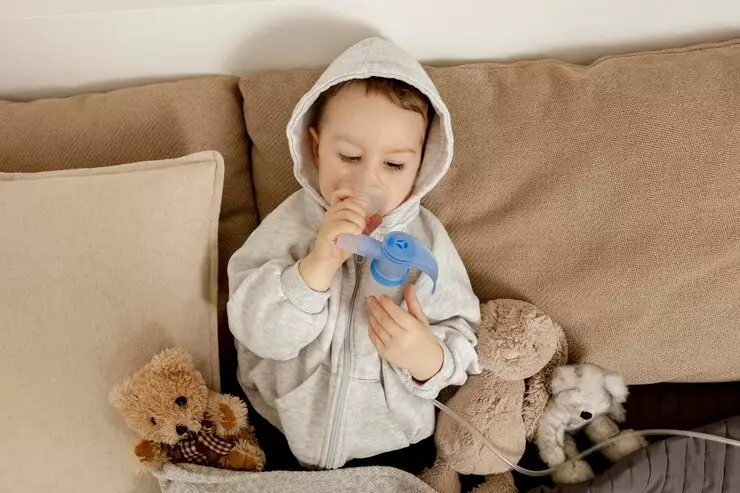foto: freepik.com
Brilio.net - Pneumonia can attack anyone, including children. According to the World Health Organization or WHO, pneumonia has contributed around 14 percent of all deaths in children under 5 years of age. Not only that, in 2019 pneumonia also killed 740,180 children.
In Indonesia, according to UNICEF data, pneumonia is the biggest cause of death in children under five years old, with an estimated 19,000 children dying in 2018. Global estimates record that every hour, 71 children in Indonesia are affected by this disease and 2 children die every hour.
Pneumonia is a disease caused by viral, bacterial and fungal infections. Streptococcus pneumonia bacteria is a common cause of pneumonia, while viruses such as influenza, RSV, adenovirus, HPIV, coronavirus, and rhinovirus can also cause it.
Not only that, pneumonia can be contagious and can spread in several ways. Pneumonia can be transmitted through the air (from coughing or sneezing), through the blood, especially during or after birth, or through contaminated surfaces.
Parents need to be aware of this disease, so that their children don't get pneumonia. Come on, take a look at the brilio.net review which has been summarized from various sources, Thursday (18/7).
Symptoms of pneumonia in children

photo: freepik.com
Pneumonia in children is a serious condition that affects the respiratory tract and can cause a variety of symptoms. The symptoms that can be felt in children are as follows:
- Coughs and colds.
- Fever.
- Sore throat.
- Breathing sounds or wheezing.
- Nausea or vomiting.
- Diarrhea.
- Decreased appetite.
- Crying and fussing more often than usual.
- Weakness and difficulty concentrating.
Apart from that, there are risk factors for pneumonia because the body's immune system is still weak and not fully formed. The things that make a child's immune system last longer are as follows:
- Not getting breast milk (ASI).
- Malnutrition or malnutrition.
- Certain infections such as HIV and Measles.
- Incomplete immunization or not receiving the pneumonia vaccine.
- Born prematurely.
Causes of pneumonia in children

photo: freepik.com
Pneumonia in children can be caused by various microorganisms, both viruses, bacteria and fungi. Common infections are as follows:
- Viruses.
Viruses such as respiratory syncytial virus (RSV), influenza (flu) viruses, and adenoviruses can cause pneumonia in children, especially in infants and younger children.
- Bacteria.
Streptococcus pneumoniae (pneumococcus) bacteria are the main cause of bacterial pneumonia in children. Apart from that, Haemophilus influenzae type B (Hib) bacteria also often caused pneumonia in children before the Hib vaccine was available.
- Mold.
Fungi such as Pneumocystis jirovecii can cause pneumonia in children whose immune systems are weakened, for example those with HIV/AIDS.
How to treat pneumonia in children

photo: freepik.com
The way to treat pneumonia is to adjust to the cause of the disease. If it is caused by bacteria, the doctor will prescribe antibiotics. In general, this disease will improve after 48 hours in mild conditions after taking antibiotics.
If the child's condition has improved, the antibiotic medication must still be finished. The child may have a cough for 3 weeks after treatment is finished. Then, the condition will gradually heal by itself.
In addition, the treatment of children with viral pneumonia is carried out by a doctor. The doctor will give medication to relieve the symptoms. The recovery period for viral pneumonia takes around 4 weeks.
If the child is weak or has severe pneumonia, the doctor will provide oxygen therapy and IV fluids. Apart from that, doctors will also give medicines by injection to children who suffer from pneumonia.
Apart from that, parents can prevent pneumonia in children as follows:
1. Children's nutritional needs are met
Adequate nutritional needs in children are very important in preventing pneumonia and maintaining a strong immune system to fight infection. Good nutrition provides a solid foundation for the growth and development of a child's immune system.
Adequate nutritional intake, including protein, vitamins (especially vitamins A, C, and D), minerals such as zinc and iron, and healthy fats, supports optimal lung function and strengthens the body's defenses against infection.
2. Complete child immunization
An effective way to prevent pneumonia in children is to give the pneumonia vaccine or better known as the PCV vaccine to reduce the risk of getting this disease. Apart from that, also provide additional immunizations such as influenza vaccine, measles vaccine, HiB, and DPT vaccine.
3. Clean and healthy living behavior
You must live a clean and healthy life by washing your hands with soap and running water after touching any object. Not only that, maintaining the cleanliness of the house and processing food cleanly before consuming it is mandatory.
(brl/lea)